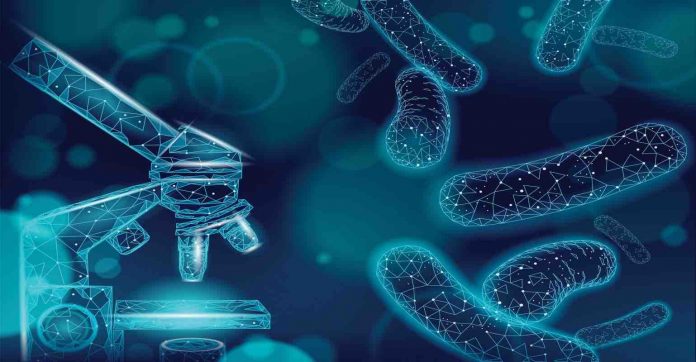A human rights activist and a group of anthropologists and human biologists are casting a critical lens on the way that microbiome research is conducted with Indigenous peoples.
While this isn’t the first time that a call for more ethical research engagement in the biological sciences has been sounded, this approach, published in the May 16 issue of Nature Microbiology, is the first to engage the microbiome sciences from an interdisciplinary perspective.
An international group of authors from UNLV, The University of Arizona, the University of Oklahoma, and the University of Vienna, argue that the collection of microbiome data from Indigenous communities poses a series of ethical challenges that must be addressed.
The human microbiome is the collection of all microbes (bacteria, archaea, fungi, viruses, and their genes) that live on and in our bodies. Some microorganisms are beneficial and their study might lead to therapeutic benefits for a range of diseases (like treatment for inflammatory bowel disease, diabetes, or pathogen infections). The desire to identify which of these microorganisms might hold the key to unlocking treatments for global health burdens in the West has led to a push for more biological sampling in low- to middle-income countries, including more work with the world’s Indigenous communities.
The authors argue that scientists target populations perceived to have less exposure to environmental toxins or who consume a “wild” diet similar to that of our ancestors, something they say is not only scientifically inaccurate, but also disrespectful to communities.
“It isn’t possible to ‘rewild’ our diets or our bodies,” says senior author, Alyssa Crittenden, an associate professor of anthropology at UNLV. “There isn’t one ancestral microbiome – and even if there were, we can’t somehow recreate it in the 21st century by studying particular groups of people.”
Drawing upon years of varied work (from anthropology to genomics to Indigenous human rights law), the authors provide actionable suggestions to address the logistical and ethical quandaries of collecting biological data from Indigenous communities.
Work in the microbiome sciences “has the ability to either benefit study populations, or to further marginalize them in their own nations and beyond,” says lead author Shani Mangola, a Hadzabe human rights activist and Indigenous community leader, in the paper. The authors assert that despite the long history of exploitation and legacies of colonialism inherent in extractive biological research, there is a way to engage in more ethical research.
They urge researchers to include and collaborate with participants from the outset – from project development through to publication, data management, and profit sharing. They also call for abandonment of the falsehood that gut microbiota of Indigenous communities, specifically hunter-gatherers, are somehow representative of our species’ ancestral state – an argument that, by extension, places participant communities closer to that ancestral state as well.
While there is no universal approach, the authors state that the critical first step is transparent dialogue with communities and the development of inclusive research infrastructure that addresses the needs of those providing the samples as well as those collecting them.








